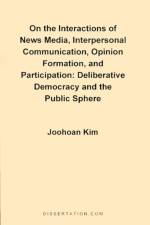av Santonino K Banya
287
Chemistry is a human endeavor that relies on basic human qualities like creativity, insights, reasoning, and skills. It depends on habits of the mind: skepticism, tolerance of ambiguity, openness to new ideas, intellectual honesty, curiosity, and communication. Young female students begin studying chemistry curiosity; however, when unconvinced, they become skeptical. Researches focused on gender studies have indicated that attitudes toward science education differ between males and females. A declining interest in chemistry and the under representation of females in the chemical science was found (Jacobs, 2000).This study investigated whether self-confidence toward chemistry, the influence of role models, and knowledge about the usefulness of chemistry were affecting the attitudes toward chemistry, of 183 high school young females across the United States. The young female students surveyed, had studied chemistry for at least one year prior to participating in the study during the fall semester of 2003. The schools were randomly selected represented diverse economic backgrounds and geographical locations. Data were obtained using Chemistry Attitude Influencing Factors (CAIF) instrument and from interviews with a focus group of three young female students about the effect of self-confidence toward chemistry, the influence of role models, and knowledge about the usefulness of chemistry on their decision to study chemistry. The CAIF instrument consisted of a 12-items self-confidence questionnaire (ConfiS), 12-items each of the influence of role models (RoMoS) and knowledge about usefulness of chemistry (US) questionnaire. ConfiS was adopted (with permission) from CAEQ (Coll & Dalgety, 2001), and both RoMoS and US were modified from TOSRA (Fraser, 1978), public domain document.The three young female students interviewed, gave detailed responses about their opinions regarding self-confidence toward chemistry, the influence of role models, and knowledge about the usefulness of chemistry on their attitudes toward the study of chemistry.Both quantitative (a Likert-type Scale questionnaire) and qualitative (open-ended questions) items were used to investigate the views of young female students. Results of the survey were analysed using a correlation test. Significant differences were found in the Likert-type scale scores, providing evidences supporting literature that suggests, self-confidence toward chemistry, the influence of role models, and knowledge about the usefulness of chemistry affect the decision of young female students about the study of chemistry. Interview responses corroborated the results from the survey. Strategies for addressing the problems and recommendations for further studies have been suggested.






























